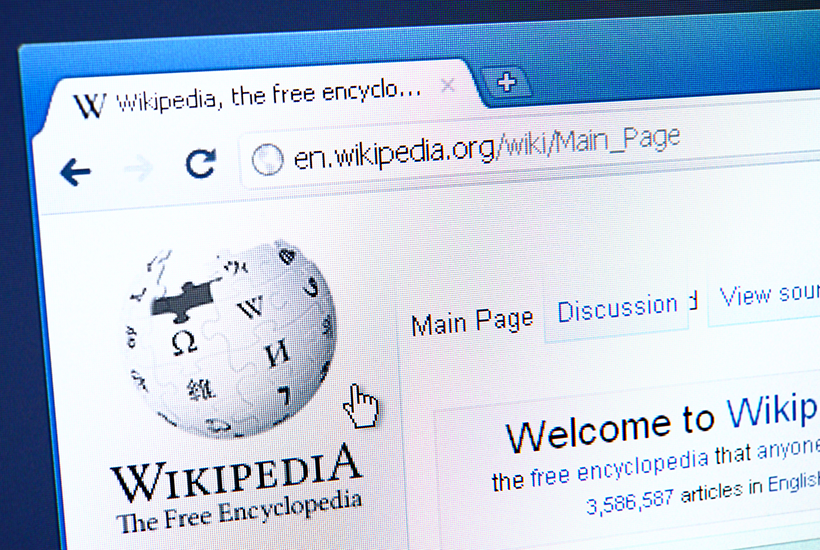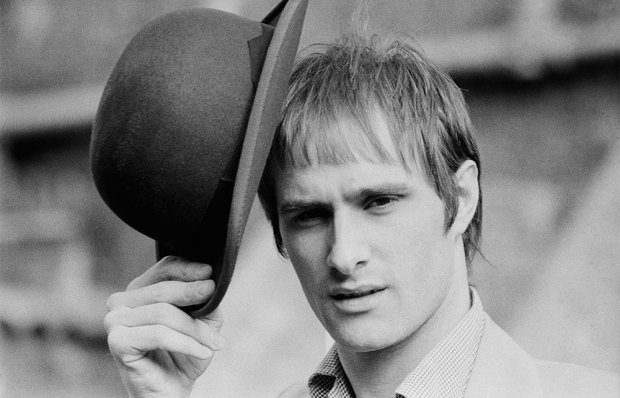Teachers were told to exclude children who made ‘inappropriate’ jokes about Covid when they returned to school this week. These days every joke is inappropriate in one way or another: someone, somewhere will find it transgressive. I cannot imagine being a schoolchild and not making a joke about Covid, and a sense of humour is about the only thing these kids have got left. But for the officials who dreamed up these edicts, humour is the last refuge of the bourgeois, as Herbert Marcuse or one of those Frankfurt School monkeys put it. (I forget exactly which one. Maybe it was Jürgen Habermas. What a fun night you’d have out on the town with those boys.)
But the poor children: masked up in the corridors, separated from their mates, held in ‘bubbles’, at school one week, at home the next, denied the human right to make jokes about their predicament — all to preserve them from an illness which, if they caught it, they would not even notice. Covid is real enough. But for the children it is a chimera.
They can also be sent home if they ‘cough maliciously’. I kind of coughed maliciously when I read the recent comments made by Liz Jolly, the chief librarian of the British Library. She had been on video simpering around some fatuous decolonising BAME project which when it is put into effect will undoubtedly serve to devalue the worth of the institution under her benighted stewardship. These were her words: ‘I think, as I have said before, that we need to make sure some white colleagues are involved because racism is a creation of white people.’
I mentioned a week or so back that we now live in a post-truth society. One of the fascinating aspects of our dystopia is the way in which a very stupid lie — such as ‘white people created racism’ — becomes a truth, and a truth which in the end becomes unassailable. It is not just people as dim as Ms Jolly (I bet she isn’t) who subscribe to what is a patent idiocy. In order for the claims of victimhood to have proper purchase, it is an article of faith for the monstrously woke, along with easily disprovable canards such as ‘colonialism is the cause of Africa’s poverty’ and ‘white people who don’t think they’re racist are even more racist because of their denial’ and so on.
The problem is that these palpable idiocies become ‘fact’. So, for example, if you look up the topic of racism on Wikipedia, it will tell you in the introduction: ‘Racism is a relatively modern concept, arising in the European age of imperialism, the subsequent growth of capitalism, and especially the Atlantic slave trade, of which it was a major driving force.’ That neatly accords with Ms Jolly’s assessment and chucks in a good dig at capitalism as well.
Sadly, I didn’t have the time to look up ‘evil’ on Wikipedia. My guess is that it will say: ‘Evil was invented by the white, male, capitalist Manchester businessman Josiah Wright in late March 1792, just before teatime. Before then it did not exist.’ There are probably similar entries for ‘filth’, ‘ordure’, ‘nastiness’, ‘hatred’ and ‘venality’. All of them invented by the white man and imposed upon a previously happy planet.
This is not so far-fetched as you might think — indeed it is vital to the supporters of the post-truth society to insist that all bad stuff started with white men and that the world existed in a prelapsarian state of decency, civility, fraternity and equality until we came along and wrecked everything. This bizarre notion both underpins the concept of white privilege and implies the absolute necessity of cringing white guilt.
However, if you look up a range of other topics on Wikipedia, you will find very different answers. This is another important facet of the post-truth society: the ability to hold two contradictory facts in one’s head at the same time and believe them both to be true. So, for example, if you check out ‘racism in Africa’ you will find historic reports of racism dating back centuries, including the persecution of pygmies by the dominant Bantu people in the Congo, the persecution of black sub-Saharan Africans in Mauritania, the bedevilled status of Nubians in both Kenya and Sudan, and much more.
Racism clearly existed for a very long time before the industrial revolution and the slave trade. It seems almost too obvious to point to King Edward I and his expulsion of British Jews in 1290 — or going back a shade further, King Tiglath-Pileser’s deportation of thousands of Jews from Samaria in 733 bc. There are plenty of examples of racism from antiquity within the empires of both the Romans and the Greeks, even if revisionist historians sometimes deny the fact for reasons of political expediency.
The real truth is that racism has been with us forever, of course — since we first emerged from the primordial slime, slithered on to land and decided that we would rather be with creatures who looked a bit like us and were wary of those who differed. It is part of the ‘us and them’ mechanism in our brains which has tended to prove useful for reasons of self-preservation but has a certain downside. More specifically, it is hard-wired within the amygdala region of our brains — almond-shaped globs of grey matter within each cerebral hemisphere, part of the limbic system, which regulate our propensity to feel fear. Apparently everyone has them. Or maybe they are bigger and nastier in white people — hell, I don’t know. I’m not a brain surgeon.
Incidentally, in a World Values Survey in 2013, the UK was ranked among the least racist countries in the world, alongside Australia. Don’t tell Ms Jolly. It will discombobulate her and she may forget to stamp some books or fine people for not returning them on time.
Got something to add? Join the discussion and comment below.
Get 10 issues for just $10
Subscribe to The Spectator Australia today for the next 10 magazine issues, plus full online access, for just $10.
spectator.co.uk/rodliddle - The argument continues online.
You might disagree with half of it, but you’ll enjoy reading all of it. Try your first month for free, then just $2 a week for the remainder of your first year.















Comments
Don't miss out
Join the conversation with other Spectator Australia readers. Subscribe to leave a comment.
SUBSCRIBEAlready a subscriber? Log in